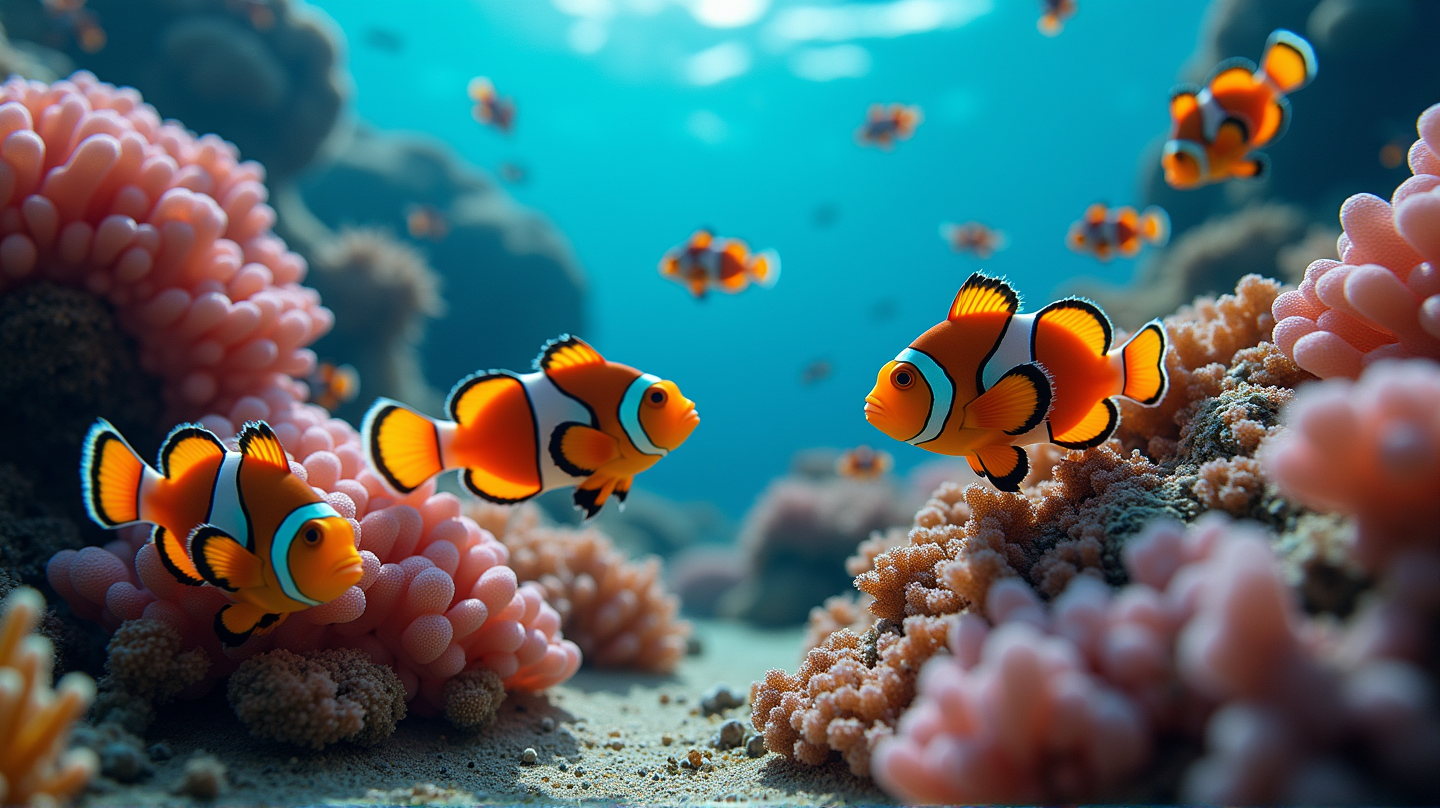Clownfish, those charismatic orange-striped inhabitants of coral reefs, have found an exceptional way to confront their habitat’s rising temperatures. These small fish have started to shrink their bodies in response to heat waves, a fascinating strategy uncovered by scientists amid the warming waters of Papa New Guinea.
Marine Life in the Hot Seat
As oceanic heat waves intensify due to climate change, clownfish have demonstrated an extraordinary adaptive ability. Recent observations have revealed that these fish, residing primarily in iconic sea anemones, have begun to reduce their size during heat waves, improving their chances of survival. In a particularly scorching period in 2023, 101 out of 134 clownfish monitored in Kimbe Bay exhibited this shrinkage.
The Science Behind the Shrinking
The underlying mechanism remains a mystery. However, researchers speculate that clownfish might reabsorb their bone matter, allowing them to save energy when food becomes scarce. By easing their energy demands, especially during stressful conditions, these fish exemplify nature’s remarkable capacity for adaptation.
Gender Dynamics in Adaptation
Intriguingly, this physiological alteration does not affect the clownfish’s social order. Female clownfish adjust their size strategically, staying slightly larger than their male counterparts, thus maintaining matriarchal dominance within their communities. This sync in size adaptation among breeding pairs illustrates their instinctive measures to preserve social structure amid stress.
Hope for Marine Biodiversity
While similar size reductions have been observed in other species, such as marine iguanas during El Niño events, it marks the first time this phenomenon has been documented in coral reef fish. According to Rocky Mountain Outlook, the ability to bounce back once favorable conditions return further reinforces the idea that the biosphere, despite facing considerable pressures, possesses innate resilience.
A Temporary Solution With Long-Term Queries
Despite these findings, questions linger about the long-term viability of this strategy as a response to persistent climate change-induced challenges. The study, published in Science Advances, highlights an immediate coping mechanism that may require additional adjustments in the future if heat waves persist.
The clownfish’s ability to ‘catch up’ in growth reveals an astonishing facet of adaptability and resilience in the ever-changing marine environment. This study not only enriches our understanding of marine biology but also underscores the urgency of addressing climate change to preserve the delicate balance of underwater ecosystems.
